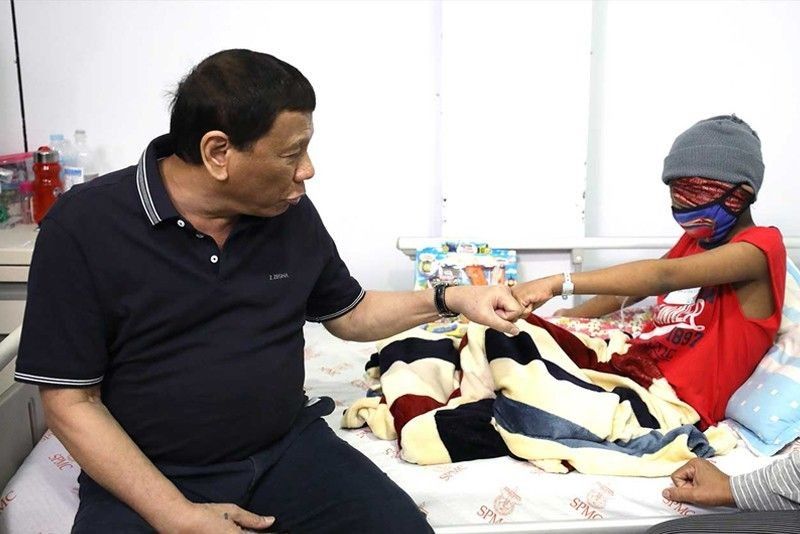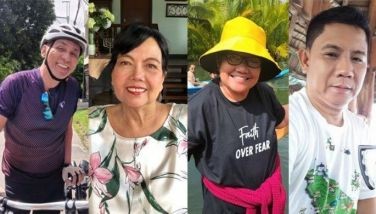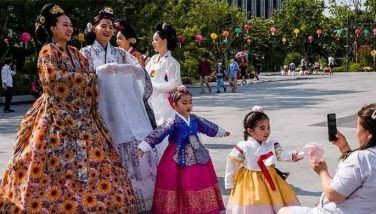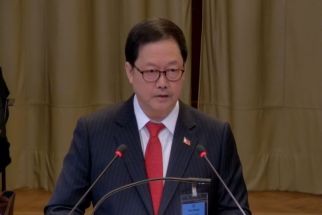Duterte signs law making adoption process simpler

MANILA, Philippines — President Rodrigo Duterte has signed into law a bill that would simplify the adoption process and grant amnesty to those who tampered records to make it a appear that a child was born to a person who is not the biological mother.
Duterte signed Republic Act 11222 or the Simulated Birth Rectification Act on February 21. A copy of the law was released by Malacañang on Thursday.
The new law would allow the rectification of the simulated birth of a child, in which the simulation was made for the best interest of the child.
Simulation of birth record refers to the “tampering of the civil registry to make it appear in the record of birth that a child was born to a person who is not such child’s biological mother, and causing the lost of the true identity and status of such child.”
It would also fix the status and filiation of a child whose birth was simulated by giving such child all the benefits of adoption and ensuring that he or she would be entitled to all rights provided to legally-adopted children.
The law also seeks to provide for a simpler and less costly administrative adoption proceeding that will apply to children who have been living with persons who simulated their birth record for at least three years.
Under the law, a person who simulated a child's birth and who cooperated in doing so shall not be criminally, civilly or administratively liable provided that it was made for the best interest of the child and the child has been consistently considered and treated by the person as his or her own son or daughter. To avail of the amnesty, the person should have filed a petition for adoption with an application for the rectification of the simulated birth record within ten years from the effectivity of the law.
A person who simulated the birth of a child may avail of adoption proceedings and rectify the birth record if the child has been living with the person for at least three years before the law took effect. Also required is a social welfare department-issued certificate declaring the child legally available for adoption.
Republic Act 8552 or the Domestic Adoption Act penalizes those who cause the fictitious registration of the birth of a child under the name of a person who is not the biological parent. In an earlier statement, Sen. Grace Poe, principal author of the Simulated Birth Rectification Act, said the provision made adoption tedious and costly for ordinary Filipinos.
Under the new law, adoptors must be Filipino citizens, of legal age, possess full civil capacity and legal rights, of good moral character, have not been convicted of any crime involving moral turpitude, emotionally and psychologically capable of caring for children and capable of supporting the child.
For couples by which one of the adopters is a foreigner married to a Filipino, the foreigner must have been residing in the Philippines for at least three years before the filing of the petition for adoption.
Instead of going through court proceedings, those who seek to adopt a child may file a petition with the social welfare and development officer of the city or town where the child lives. The social welfare secretary shall decide on the petition within 30 days from receipt of the recommendation of the agency's regional director.
Once the requirements are satisfied, the adopted child would be considered a legitimate son or daughter and will be entitled to all rights and obligations provided by law.
About 6,500 children have been declared available for adoption, almost 4,000 of them under the care of state-run facilities, according to a recent Senate statement.
The lower chamber passed House Bill 5675 on Dec. 12, 2018, while the upper chamber approved Senate Bill 2081 on Dec. 13, 2018. — with Gaea Katreena Cabico
- Latest
- Trending

































